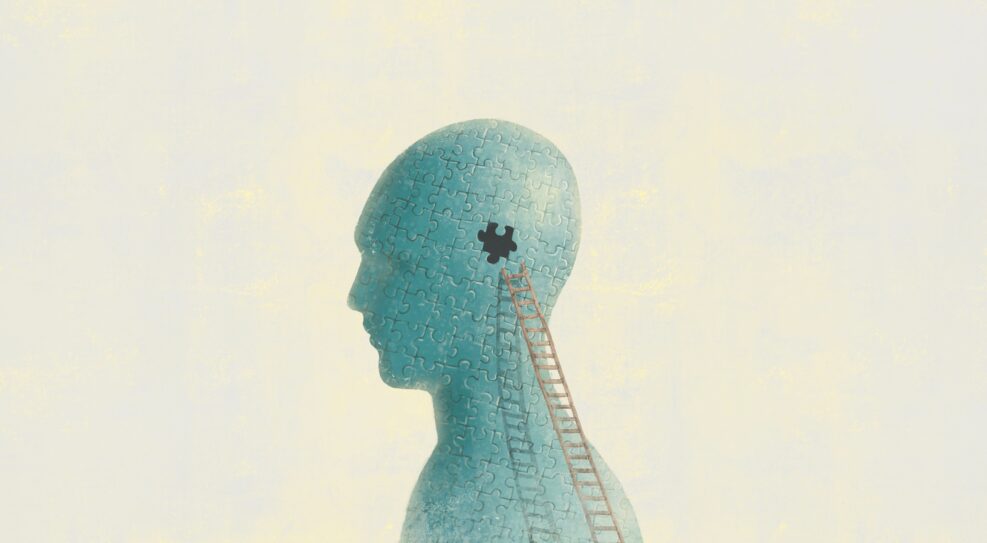
TagPhilosophy of Mind


Science of Consciousness: The Elephant in the Room
Science has had great success in explaining many functions of living organisms in purely material terms. So why not consciousness?
The Mind is More than the Brain
A new anthology, out today, features 25 philosophers with fresh insights on the mind-body problem.
The Ultimate Defense of Substance Dualism
Philosopher J.P. Moreland is the co-author of an upcoming tome in defense of the soulFor decades, materialism has dominated the philosophical conversation. Before the 19th and 20th centuries, however, such a worldview was largely untenable. Most thinkers accepted the reality of both the body and the soul, the physical and the immaterial. What happened? And why do we see the resurgence of a fascination with consciousness and panpsychism, and a renewal of belief in the soul? Philosopher J. P. Moreland, a Fellow of Discovery Institute’s Center for Science and Culture and the author of dozens of books, has an upcoming book dealing with exactly these questions. It is The Substance of Consciousness: A Comprehensive Defense of Contemporary Substance Dualism (Oxford: Wiley Blackwell, 2023). Dr. Moreland, a professor at Biola University, is co-author with Brandon Rickabaugh, who is Read More ›

Kenneth Miller on Consciousness and Evolution
Despite Miller's claims, neither human reason nor free will evolved because neither are generated by material processesKenneth Miller is a biologist at Brown University who has been very active in his written and vocal support for Darwin’s theory of evolution. He’s neither a materialist nor an atheist – he is a Catholic, and in being one of the rare Darwinists who doesn’t subscribe wholeheartedly to the materialist/atheist paradigm, he allows himself to be used as a token theist by the Darwinists. It helps his career, no doubt, but doesn’t advance the truth. Not an admirable place to be. Miller’s New Book and What it Misses In his 2018 book The Human Instinct: How We Evolved To Have Reason, Consciousness, and Free Will, Miller manages a feat uncommon even for Darwinists – even the title of the Read More ›

Dr. Angus Menuge: Models of Consciousness (Part II)
What is it like to see a red rose? To smell a red rose? To feel pain? In this week’s podcast, Dr. Robert J. Marks and Dr. Angus Menuge continue their discussion on philosophies of the mind, delving into competing definitions of consciousness. Show Notes Additional Resources

Does the Moon Exist if No One is Looking at It?
Is our physical reality purely subjective or is it objective? Why has materialim been around for so long? Do we have free will? Dr. Michael Egnor and Dr. Bernardo Kastrup discuss physics, idealism, materialism, and free will. Show Notes Additional Resources

An Atheist Argues Against Reason
And thinks it is the reasonable thing to doJustin Smith is leading the way to the abandonment of rationality. There’s not a shred of reason in his essay.
Read More ›
The Junk Science of the Abortion Lobby
Fetuses not only experience pain but experience it more intensely than do adults
In One Sense, Consciousness IS an Illusion…
We have no knowledge of the processes of our consciousness, only of the objects of its attention, whether they are physical, emotional, or abstract
4: Making AI Look More Human Makes It More Human-like!
AI help, not hype, with Robert J. Marks: Technicians can do a lot these days with automated lip-syncs and smiles but what’s behind them?
How is Human Language Different from Animal Signals?
What do we need from language that we cannot get from signals alone?
AI and the Future of Murder
If I kill you but upload your mind into an android, did I murder you or just modify you?
Has Neuroscience Disproved Thinking?
A philosopher argues that Nobel Prize-winning research shows that the theory of mind is just another illusion, useful for survival and success
Noted Astronomer Envisions Cyborgs on Mars
Sir Martin Rees thinks of this “post-human evolution” as going beyond Darwin to “secular intelligent design.”
A Short Argument Against the Materialist Account of the Mind
You can simply picture yourself eating a chocolate ice cream sundae.
Is Free Will a Dangerous Myth?
The denial of free will is a much more dangerous myth
Apes Can Be Generous
Are they just like humans then?
Is the octopus a “second genesis of intelligence”?
Can its strange powers provide insights for robotics or the human mind?